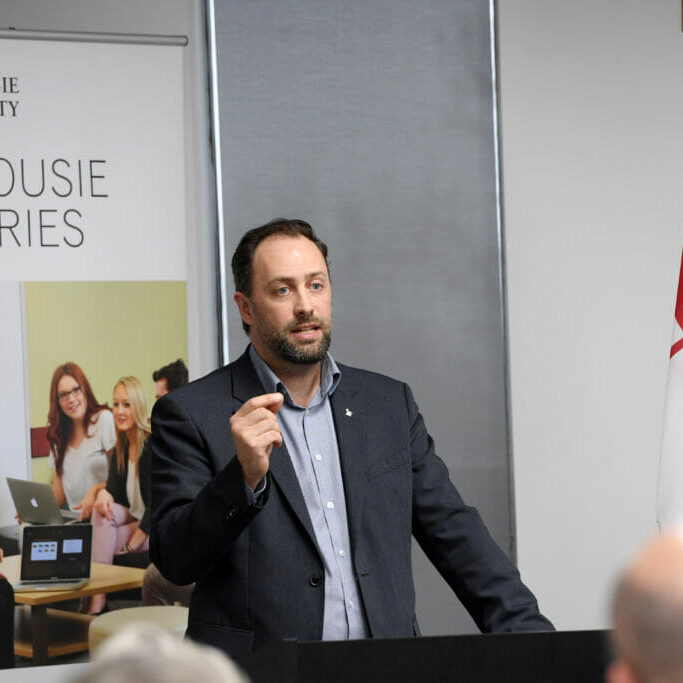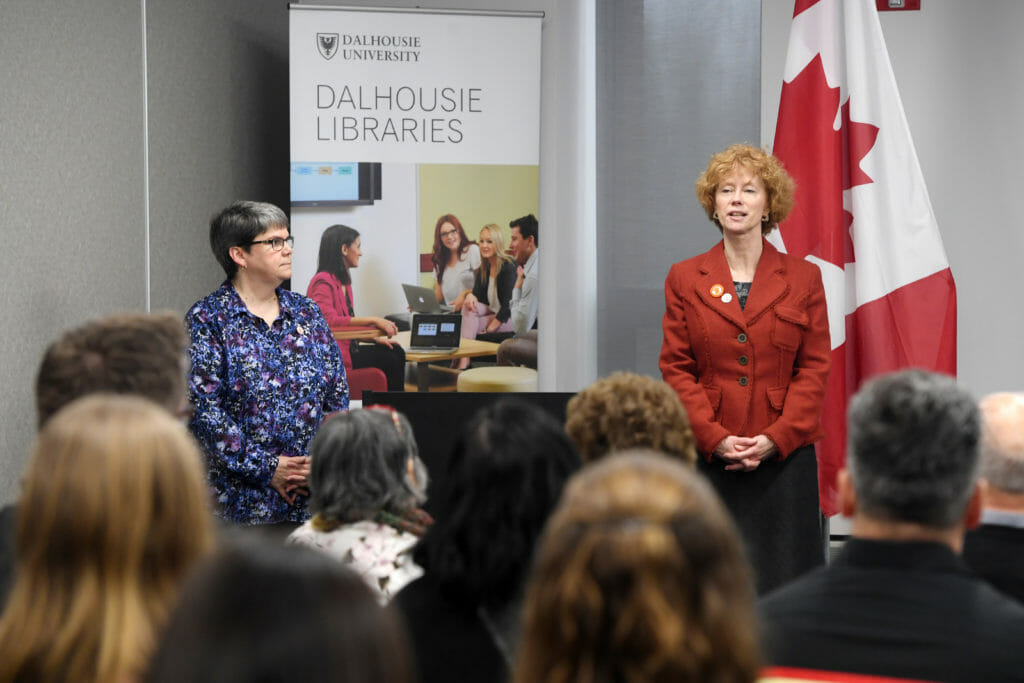
National Centre for Truth and Reconciliation partners with Dalhousie
Dal is “committed to doing this reconciliation work,” says Indigenous Services Librarian
Documents from the Truth and Reconciliation Commission are now available through Dalhousie University libraries.
A recent partnership between Dalhousie and the National Centre for Truth and Reconciliation (NCTR) in Winnipeg means the centre’s archives are accessible through Dalhousie library services in Halifax as well as the Agricultural Campus in Truro. In addition to digitally-accessible archives, a physical location in the Indigenous Community Room at the MacRae Library serves as a space for research consultations, meetings and events.
The NCTR opened at the University of Manitoba in 2015. According to Centre Director Ry Moran, the centre “is tasked with preserving all the materials” that were collected during the Truth and Reconciliation Commission –– such as statements from residential school survivors –– “and really working hard to make sure that information continues to do its job.”
In addition, “the

NCTR’s collaboration with Dalhousie is the centre’s first satellite location on the east coast.
“With it being sort of headquartered here [in Winnipeg], and then our partners operating across the country –– that gives the centre that regional presence that really, really important,” said Moran. “The relationship with Dal came about fairly organically through a series of conversations at different events that members of the Dal community and I were present at.”
The collaboration
Morning Star Padilla, who was recently hired to Dal’s new Indigenous Services Librarian position, is excited for Nova Scotians and other Atlantic Canadians to have greater access to the Centre’s resources.
“We did have a residential school right down the road from us in Truro,” said Padilla, referring to the Shubenacadie Indian Residential School.
“It makes that connection back to local communities and honouring the memories of those who have experiences there, as well as their families and relatives. It’s also showing that the NCTR and Dalhousie together are committed to doing this reconciliation work, continuing to move forward together with our local Indigenous communities.”
According to Padilla, there’s already plenty of local interest in perusing the NCTR archives and using the Indigenous Community Room: Mi’kmaq community groups have visited the space, students have inquired about hosting learning events and faculty members have asked how to incorporate more Indigenous content into their teaching.
“We’re able, through something like this, to put Elders in contact with youth and bring people of different generations together to really continue to learn from this,” said Padilla.
Prospective researchers –– whether part of the Dalhousie community or not –– can contact Padilla to set up a meeting in Halifax or Truro. Padilla can show them how to access publicly available archives or make requests to see documents that have not been made public.
Moran admits there is still much work to be done regarding Truth and Reconciliation, and he hopes the NCTR can continue cultivating partnerships such as this.
“We’re kind of coast-to-coast now. We’ve got to go North,” he said. “We have a lot of partnerships with other universities and other institutions across the country. Realizing those, I think, is still a big part of the next step. I think the step we’re taking with Dal brings us that much further down the road.”






